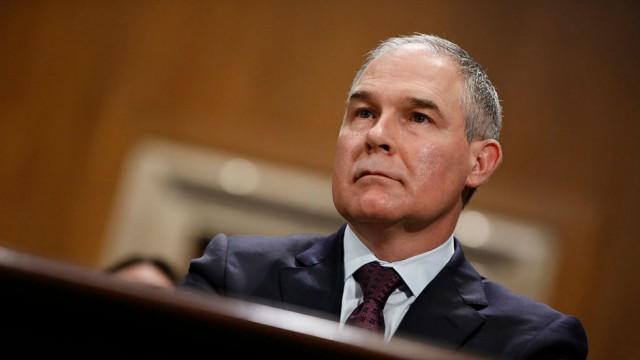Wellesley students have a long, proud history of public service, but in the current political climate it has become increasingly clear that, for scientists as well as other professionals, working for government agencies is no longer the most effective way to serve the public. A few weeks ago, several Environmental Protection Agency (EPA) scientists were barred from presenting at a conference in Providence, RI regarding the Narragansett Bay Estuary Program. These scientists were originally supposed to discuss a report that analyzed the effects of climate change on sea level, ocean and air temperature and fish populations. One scientist was set to give the keynote address at one workshop and was forced to cancel his speaking engagement only a few days before the conference. Many scientists and democratic members of Congress have expressed outrage at what they have justifiably deemed an act of scientific censorship. The Trump administration has made a point of minimizing and even denying the scientifically proven effects of climate change, but this does not give them license to unilaterally control which data is presented and discussed.
The decision to block these scientists from presenting their findings came from the EPA headquarters in Washington which is run by administrator Scott Pruitt. Pruitt was appointed by President Trump and has also rejected the scientific consensus on climate change. Additionally, Pruitt sued the EPA to challenge the Cross State Air Pollution Rule less than three years ago. While it may initially seem nonsensical to appoint a climate change denier to head the EPA, it is exactly what we should expect from this administration. Trump’s campaign was not based on carefully crafted policies to address national issues, but rather on the exploitation of feelings. Any facts that did not t the narrative he was trying to tell were casually dismissed as “fake news.” Under Pruitt’s leadership the Trump administration has the power to suppress any scientific findings that come out of the EPA that do not t the beliefs of the administration.
Many partisan issues are a question of what the ideal outcome of any given policy should be. In most cases, the two major parties have very different ideas of what an ideal immigration, welfare or abortion policy would look like, and they have different ideas about the best way to implement those policies. But in most of these cases, both sides can generally agree that there is an issue that needs to be addressed. Climate change differs from many of these highly partisan issues in that we cannot even agree that it is a real issue, much less what the best way to solve it might be. The rest of the world has not only agreed that climate change is a real problem, but they have also settled on what they believe is the best way to address it by signing the Paris Climate Accord. Now that Nicaragua and Syria have both signed the treaty, the U.S. has become the sole holdout.
Despite the fact that there is a sweeping consensus in the scientific community, many conservatives still deny the validity of climate change. By not allowing EPA scientists to present their findings the Trump administration has demonstrated its willingness to compromise the integrity of the EPA for the sake of the administration’s agenda. In theory, the EPA, which was founded by republican Richard Nixon, is supposed to be a nonpartisan agency with a primary mission to protect human and environmental health, but that becomes difficult to do when scientists are barred from discussing their findings. This administration has a tendency to ignore the urgings of experts in favor of pursuing policy that is inconsequential or even dangerous, but that makes their supporters feel heard. Sometimes we forget that the U.S. is in fact not a pure democracy but rather a democratic republic. This means
that we elect representatives to look after our interests and craft policy on issues that are much too large or complex for the average person to make an informed decision on. The purpose of agencies like the EPA is to provide the government with the necessary information it needs to make informed decisions. But when these findings fall on deaf ears, it leaves many scientists justifiably outraged.




